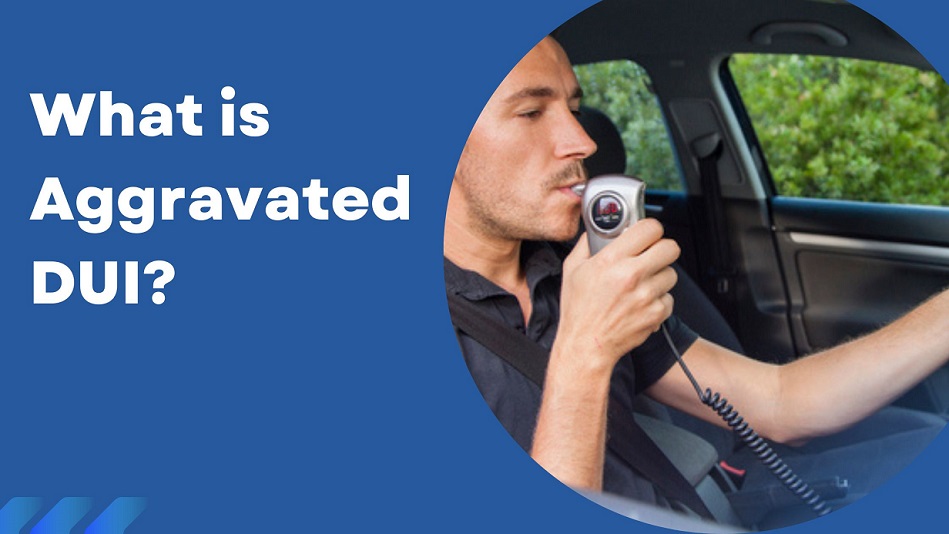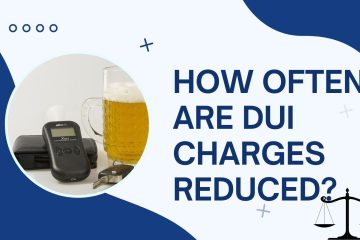Remember, Aggravated DUIs are very serious offenses.
| Category | Information |
|---|---|
| Definition | Aggravated DUI (driving under the influence) is a more serious version of standard DUI charges in California. Aggravated DUI occurs when certain factors, known as "aggravating factors," are present in the case that enhances the seriousness of the offense. |
| Aggravating Factors | These may include: repeat offenses, high blood alcohol content (BAC) (typically .15% or higher), DUI with minor in the car, DUI causing injury or death, DUI with suspended or revoked license, speeding or reckless driving during the DUI, and refusal to take a chemical test. |
| Legal Code | Vehicle Code 23578 VC (enhancement for high BAC), Vehicle Code 23572 VC (enhancement for minor in vehicle), Vehicle Code 23550 VC (enhancement for repeat offenses), Penal Code 191.5(b) PC (vehicular manslaughter while intoxicated). |
| Penalty | This varies depending on the specifics of the case and the defendant's prior convictions. However, the consequences may include: longer jail or prison sentences, higher fines, longer DUI school, longer license suspension, installation of an ignition interlock device (IID), designation as a "habitual traffic offender" (HTO), and potentially even a strike under California's Three Strikes Law. |
| Ignition Interlock Device (IID) Requirement | Typically, for repeat offenses or when the BAC is significantly high, the court might require the installation of an IID in the offender's vehicle. The IID prevents the vehicle from starting if it detects alcohol on the driver's breath. |
| DUI School | Often, those convicted of aggravated DUI are required to complete a DUI education program. These programs can range from 9 months to 30 months long, depending on the severity of the offense and the defendant's prior convictions. |
| Probation | A judge may order probation in lieu of, or in addition to, jail or prison time for an aggravated DUI conviction. Probation terms typically include mandatory DUI school attendance, regular drug/alcohol testing, and refraining from committing any more crimes. |
Defining Aggravated DUI
Simply put, an aggravated DUI is a charge that’s elevated from a standard DUI due to the presence of certain aggravating factors. These factors are typically associated with higher levels of risk or harm to the driver, passengers, and the general public. Aggravated DUI charges carry more severe penalties, including longer jail terms, heavier fines, and stricter license restrictions.
Aggravated DUI in California
An aggravated DUI is a more severe charge than a standard DUI. It occurs when specific “aggravating” factors are present at the time of the offense, which enhance the severity of the crime. These factors can significantly increase the penalties associated with a DUI charge.
In California, factors that can result in an aggravated DUI charge include:
- A blood alcohol content (BAC) significantly higher than the legal limit of 0.08%
- Multiple DUI offenses within a ten-year period
- The presence of a minor under 14 years old in the vehicle at the time of the DUI
- DUI resulting in the injury or death of another person
- Driving under the influence while on a suspended license
California Vehicle Code Section 23152(a)
Under California Vehicle Code Section 23152(a), it is unlawful for a person who is under the influence of any alcoholic beverage to operate a vehicle. This code centers on the driver’s physical or mental impairment, regardless of their actual BAC level.
Example: Let’s say a person has a BAC of 0.07%, which is below the legal limit. However, due to their specific tolerance to alcohol, they’re exhibiting signs of significant impairment, such as swerving and erratic driving. Even though their BAC is below 0.08%, they can still be charged under VC Sec. 23152(a) because their ability to drive was compromised by alcohol consumption.
California Vehicle Code Section 23152(b)
California Vehicle Code Section 23152(b) makes it unlawful for any person who has 0.08% or more, by weight, of alcohol in their blood to drive a vehicle. This section focuses on the actual BAC level rather than the driver’s apparent level of impairment.
Example: In this case, suppose a driver is pulled over for a minor traffic violation, such as a broken taillight. The driver doesn’t exhibit any visible signs of intoxication. However, a breathalyzer test reveals a BAC of 0.08%. Even if they do not appear impaired, they can still be charged under VC Sec. 23152(b) because their BAC is at the legal limit.
Aggravating Factors
Different states have different laws concerning what constitutes an aggravated DUI, but some common factors include:
- Excessive Blood Alcohol Content (BAC): If a driver’s BAC exceeds a certain level, usually .15% or .20%, depending on the state, the DUI charge could be elevated to an aggravated DUI.
- Multiple DUI Offenses: Repeat DUI offenders may face aggravated DUI charges. The number of prior offenses required to trigger an aggravated DUI varies by state.
- Child Endangerment: Driving under the influence with a minor in the vehicle can lead to an aggravated DUI charge in many jurisdictions.
- Causing Bodily Harm or Death: If a DUI incident results in injury or death, it’s often charged as an aggravated DUI.
- Driving on a Suspended License: Operating a vehicle while your license is suspended or revoked due to a previous DUI can also lead to an aggravated DUI charge.
- Excessive Speed or Reckless Driving: If the offender is speeding or driving recklessly while under the influence, the charge may be upgraded.
Consequences of an Aggravated DUI
An aggravated DUI is a serious crime and is treated as such by the justice system. Its consequences are severe and far-reaching:
- Longer Jail Terms: The most immediate and noticeable consequence is a longer jail sentence. While a regular DUI might result in a few days to a few months in jail, an aggravated DUI could lead to years behind bars.
- Heavier Fines: The fines associated with an aggravated DUI can be substantial, often exceeding several thousand dollars.
- License Suspension or Revocation: Aggravated DUI charges can lead to longer suspension periods or even permanent revocation of driving privileges.
- Alcohol Education and Treatment: Many offenders are required to participate in alcohol education programs or substance abuse treatment as part of their sentence.
- Vehicle Forfeiture: In some states, your vehicle could be seized if you’re convicted of an aggravated DUI.
- Ignition Interlock Requirement: Courts may require installation of an ignition interlock device that tests the driver’s breath for alcohol before allowing the car to start.
Defending Against an Aggravated DUI
Facing an aggravated DUI charge can be a daunting task, which is why it’s essential to seek legal counsel. A competent attorney can explore various defense strategies, such as challenging the legality of the traffic stop, the accuracy of breathalyzer or blood tests, or the handling of evidence.
However, prevention is always the best strategy. By not drinking and driving, you not only avoid legal troubles but also protect your life and the lives of others.
The National Highway Traffic Safety Administration offers resources for understanding the risks of impaired driving and strategies for staying safe.
FAQs
What is considered a high BAC in California?
In California, a BAC of 0.08% is considered legally impaired. However, for the purposes of an aggravated DUI, a BAC of 0.15% or higher is typically considered high.
What are some common aggravating factors for a DUI in California?
Common aggravating factors include repeat offenses, a high BAC (typically .15% or higher), having a minor in the car during the DUI, causing injury or death while under the influence, driving under the influence with a suspended or revoked license, and refusal to take a chemical test.
What happens if you refuse to take a chemical test during a DUI stop?
In California, refusal to take a chemical test during a DUI stop can be an aggravating factor in a DUI case, leading to harsher penalties. Under the state’s “implied consent” laws, anyone who drives a car is considered to have given their consent to chemical testing if arrested for DUI.
What are the penalties for an aggravated DUI in California?
Penalties for an aggravated DUI may include longer jail or prison sentences, higher fines, longer DUI school, longer license suspension, the installation of an ignition interlock device, designation as a “habitual traffic offender,” and potentially even a strike under California’s Three Strikes Law.
What is an ignition interlock device (IID)?
An IID is a device that connects to a vehicle’s ignition system and requires the driver to pass a breathalyzer test before the vehicle will start. The device may be required for people convicted of an aggravated DUI.
How long might I lose my license for an aggravated DUI?
The length of the suspension can vary widely depending on the specifics of the case and the defendant’s prior convictions, but it can be several years in severe cases of aggravated DUI.
Can an aggravated DUI charge be reduced?
It may be possible to reduce an aggravated DUI charge through plea bargaining or by successfully challenging the evidence or procedure used in the arrest. Legal representation is crucial for this.
What is the difference between a standard DUI and an aggravated DUI?
The main difference is the presence of aggravating factors in an aggravated DUI, which enhance the seriousness of the offense and result in harsher penalties.
Can I get probation for an aggravated DUI?
Yes, a judge may order probation in lieu of, or in addition to, jail or prison time for an aggravated DUI conviction. Probation terms typically include mandatory DUI school attendance, regular drug/alcohol testing, and refraining from committing any more crimes.
What is DUI School?
DUI School is an educational program for people convicted of DUI. The program covers the dangers of drunk driving and substance abuse education. The length of the program depends on the severity of the DUI offense and the driver’s history.
What is a “habitual traffic offender”?
A habitual traffic offender (HTO) is a driver who has repeatedly committed traffic offenses over a specified period. Being designated as an HTO can result in additional penalties, such as longer license suspensions.
What is California’s Three Strikes Law?
California’s Three Strikes Law imposes harsher penalties, including longer prison sentences, on individuals who have been convicted of three or more serious criminal offenses.
What is the impact of an aggravated DUI on insurance rates?
An aggravated DUI will likely cause a significant increase in auto insurance rates. Some insurance companies may even refuse to provide coverage for individuals with such convictions.
How can a lawyer help in an aggravated DUI case?
A lawyer can help by providing legal advice, challenging the validity of the evidence or the procedure of the arrest, negotiating plea bargains, representing the defendant in court, and generally helping to navigate the complexities of the legal system.





